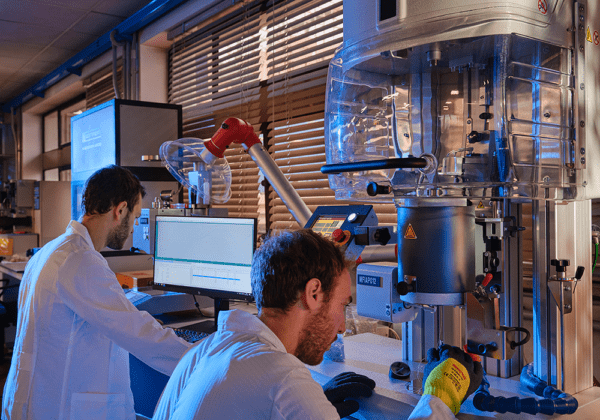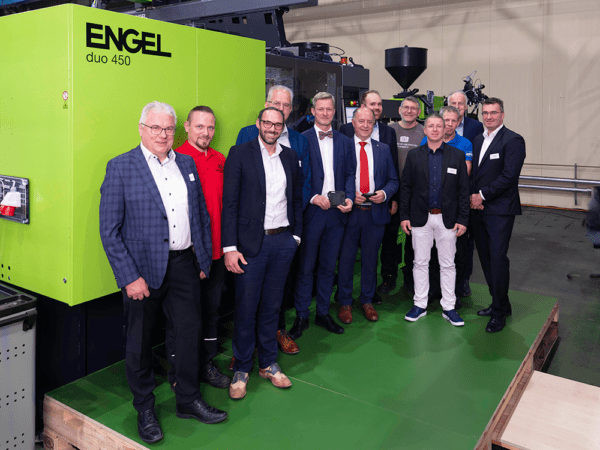
HotSeat | Josela Renardson, Head of Marketing at BioCote
|
Getting your Trinity Audio player ready...
|
Josela has been driving strategic development as Head of Marketing at BioCote® for over 2 years. She’s spearheaded the company’s global presence at events like Interplas, Chinaplas, and K-Show, mentored a team of four, and modernised the marketing function with a sustainable focus. But now, she faces a new kind of challenge—the PlastikMedia HotSeat!
What trends do you think will shape the future of UK plastics? How will BioCote respond?
The future of the UK plastics industry will be shaped by several key trends, driven by increasing awareness of environmental impact, shifts in consumer behaviour, and new regulatory frameworks. While sustainability remains a dominant factor, manufacturing challenges, advancements in technology, and evolving regulations will also play a significant role in the industry’s development.
Sustainability and Circular Economy
The push towards sustainability is at the forefront of change in the plastics industry. Both businesses and consumers are demanding greener solutions, which has led to a rising emphasis on recycled and bio-based materials. The Global Sustainability Goals and Circular Economy Package have increased the pressure to reduce plastic waste, prompting businesses to adopt materials that are more easily recycled or biodegradable. However, this shift requires the UK to enhance its recycling infrastructure to meet the growing demand for sustainable plastics while maintaining the benefits that plastics offer in terms of versatility and performance.
BioCote supports this transition by providing antimicrobial technologies that extend the lifespan of plastic products. By inhibiting microbial degradation, BioCote enables manufacturers to produce durable, long-lasting materials, which helps reduce the need for frequent replacement and minimises waste.
Manufacturing Challenges
While sustainability is important, manufacturers also face significant challenges in adapting to new material requirements. One of the key issues is the development of infrastructure capable of handling larger volumes of recycled and bio-based plastics. The ability to process and reuse plastic materials efficiently is crucial for meeting sustainability goals.
In addition, supply chain disruptions—caused by factors like geopolitical instability and fluctuating raw material prices—are forcing manufacturers to find alternative solutions. These may include sourcing more sustainable feedstocks or embracing innovative materials that align with environmental standards without compromising product performance.
Regulatory Pressures
Beyond sustainability, the regulatory landscape is shifting. The introduction of initiatives such as the UK Plastics Pact and Extended Producer Responsibility (EPR) means that manufacturers must take responsibility for the entire lifecycle of their products. Compliance with these regulations will require investment in both materials and processes to ensure that plastic products meet new standards for recyclability and environmental impact.
Moreover, in sectors like healthcare and food processing, stringent health and safety regulations remain critical. High standards of hygiene, especially post-pandemic, are still expected in these industries, making antimicrobial plastics an important feature. BioCote’s technology continues to be a valuable asset in helping manufacturers meet these hygiene requirements.
Technological Advancements
The future of UK plastics will also be shaped by rapid technological innovation. Advancements in manufacturing techniques, such as 3D printing, allow for more efficient production, reducing material waste and energy consumption. This, coupled with the development of smart and functional plastics, opens up new possibilities for the industry.
BioCote’s Response
In response to these trends, BioCote is at the forefront of helping businesses navigate the future of plastics. By offering antimicrobial solutions that can be integrated into recycled, bio-based, and advanced plastics, BioCote enables manufacturers to produce more durable and hygienic products. These features help businesses meet the twin demands of sustainability and hygiene, while ensuring their products remain competitive in a rapidly changing market.
As the UK plastics industry continues to evolve, BioCote will remain a key partner for companies seeking to innovate, comply with new regulations, and deliver high-performance materials that meet the needs of today’s consumers and businesses alike.
How has BioCote® developed during your tenure?
It’s been a great pleasure to see BioCote develop in my tenure, especially as we celebrate our 30th anniversary. At our core, we continue to support customers in producing antimicrobial products, helping them grow and succeed within their industries. Over the years, we’ve expanded our global reach, bringing greater awareness of our technology through a variety of platforms, including international events and enhanced digital exposure. Additionally, we’ve focused on strengthening relationships with both existing and new customers, ensuring our partnerships remain robust and mutually beneficial. This expansion has allowed us to solidify our position as a leader in antimicrobial technology across diverse sectors.
What do you credit as the key to your success?
I truly believe that the success of BioCote comes down to the people within the business. Throughout my time here, I’ve seen firsthand how our passion, commitment, and shared values—Open, Honest, Listening, and Accountable (OHLA)—have shaped everything we do. These values resonate deeply with me and guide my approach to both our customers and the team. I’ve always felt that it’s this collective dedication that makes BioCote what it is today—strong, innovative, and constantly evolving.
What has been the greatest challenge in your career?
There hasn’t been a singular “greatest challenge” in my career, but rather a series of evolving stages that have each brought unique difficulties. From managing high-profile clients, leading a team and profit centre, to learning new disciplines, I’ve encountered many learning curves. Balancing work and parenting, navigating the uncertainties of the pandemic, and adapting to a new business environment have all been significant. Alongside these, I’ve faced the complexities of market variations, regulatory landscape changes, and the challenge of integrating new technologies, all while observing Generation Z enter the workforce with their fresh perspectives.
One of my personal values is continuous growth and development, and each of these challenges has been an opportunity for me to expand my skill set and evolve both personally and professionally. Embracing these challenges with a mindset of growth has allowed me to navigate them with resilience and adaptability.
What advice do you wish you’d had on entering the industry and does that differ from the advice you would give to an apprentice joining now?
It’s not necessarily advice I wish I had, but something that has become a personal guiding principle: my daughter coined the term “effortude,” which we live by as a family. It combines effort and attitude—meaning give everything your all and approach it with a positive mindset. Regardless of the outcome, if you’ve put in your best effort and maintained a good attitude, you can feel proud knowing you’ve done everything within your control.
If I were to offer advice to an apprentice joining the industry today, I’d share this same principle of “effortude.” In a fast-changing industry, with new technologies, regulations, and challenges, the key is to stay committed, keep learning, and bring a positive attitude to every situation. Focus on what you can control—your effort and your outlook—and success will follow.
What hidden talents do you have?
I’m not sure if it qualifies as a talent, but I’m double-jointed! My fingers can bend in all sorts of directions, which tends to gross people out when I show them at parties.
Read more news from BioCote here.
BioCote®
+44 (0) 2477 712489
Website
Email






